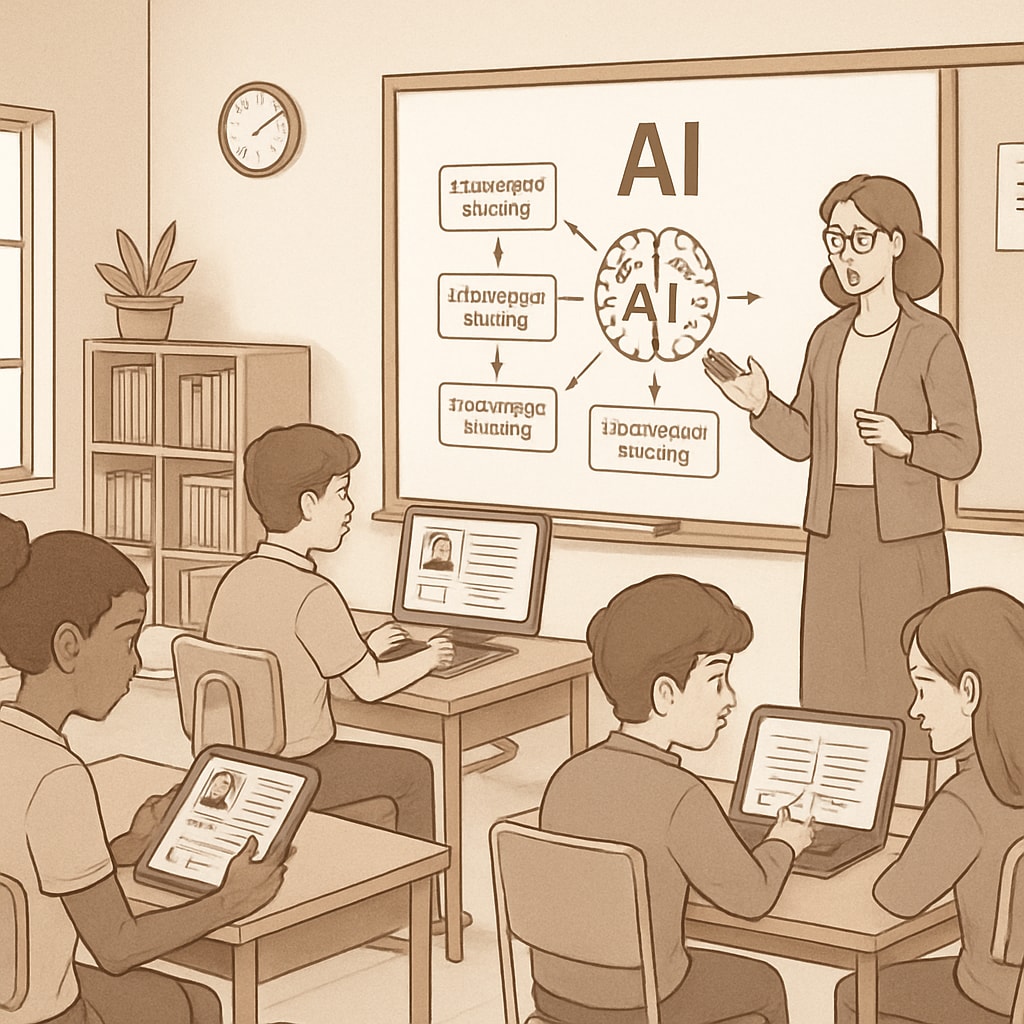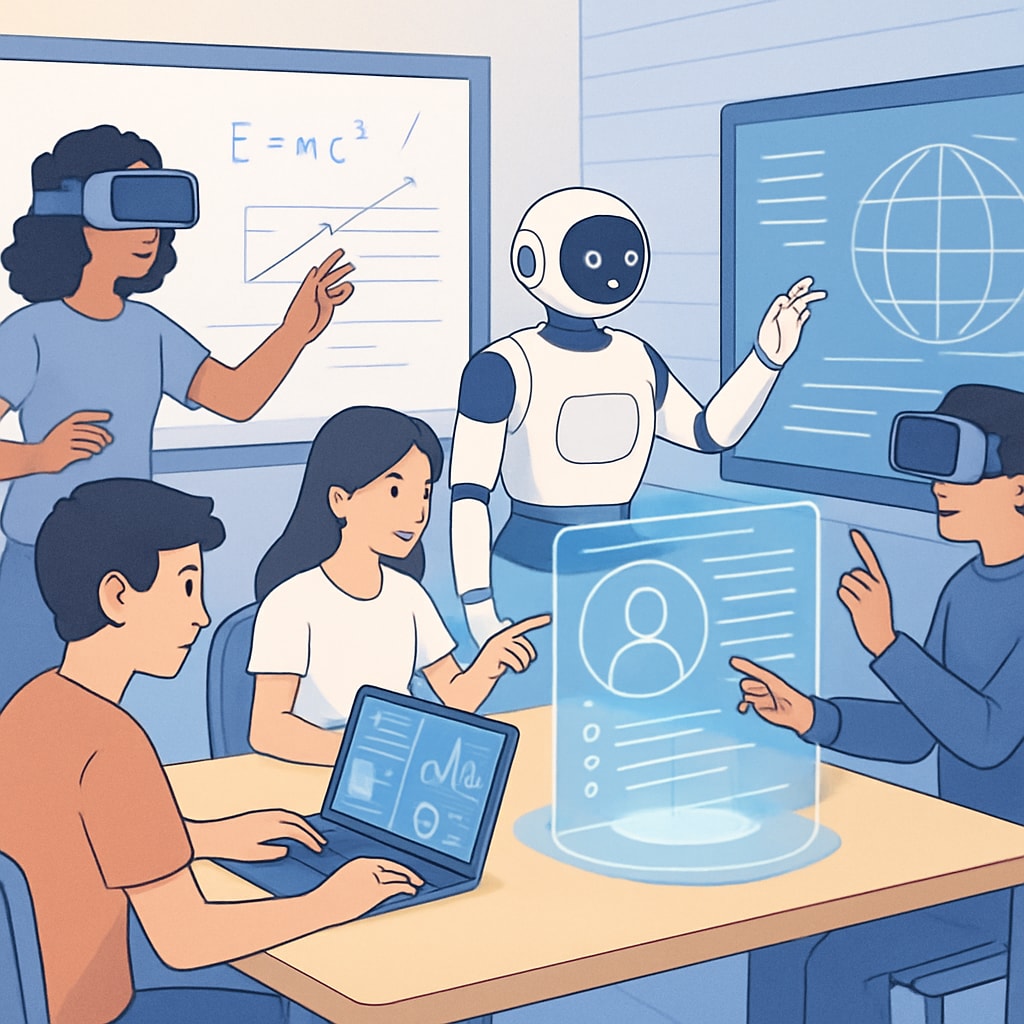Artificial intelligence (AI) is rapidly altering the landscape of school education, bringing transformative possibilities to how K12 students learn and how teachers teach. As AI integrates into classrooms, the next five to ten years promise groundbreaking changes in traditional teaching methods, personalized learning pathways, and the professional roles of educators. This shift presents both significant opportunities and complex challenges for educators, students, and policymakers alike.
How AI is Reshaping Teaching Methods
AI-powered tools are enabling educators to move beyond one-size-fits-all teaching models. Advanced algorithms can analyze student performance, learning styles, and preferences to provide actionable insights for tailoring instructional materials. For example, adaptive learning platforms like DreamBox or Khan Academy are already personalizing lessons based on individual progress.
Moreover, AI-driven systems can automate routine tasks such as grading and attendance tracking, allowing teachers to focus more on interactive and creative teaching methods. This automation will likely redefine how time is allocated within classrooms, making education more efficient while maintaining high standards.

Personalized Learning: The Future of Student Engagement
One of the most significant impacts of AI in education lies in personalized learning. AI can create bespoke learning experiences tailored to each student’s unique needs, strengths, and challenges. For example, AI-based tutoring systems can provide instant feedback and customized exercises, helping students master concepts at their own pace.
In addition, virtual and augmented reality technologies combined with AI are opening doors for immersive educational experiences. Students can explore historical events, conduct virtual science experiments, or even practice foreign languages in simulated environments, making learning more engaging and effective.
- Real-time progress tracking for students and parents
- Adaptive learning environments based on student behavior
- Enhanced accessibility for students with disabilities

Redefining the Role of Educators
As AI becomes an integral part of the classroom, the role of educators will evolve from knowledge transmitters to facilitators and mentors. Teachers will focus more on fostering critical thinking, creativity, and emotional intelligence—skills that AI cannot replicate. Educators will also play a vital role in curating AI-generated content to ensure its accuracy and relevance.
However, the transition to AI-assisted education requires substantial professional development. Teachers must acquire new technical skills to integrate and manage AI tools effectively. Governments and educational institutions will need to invest in training programs to bridge this gap and ensure educators are well-equipped for the AI revolution.
Opportunities and Challenges in AI-Driven Education
While AI offers immense potential, its integration into K12 education is not without challenges. Privacy concerns are paramount, as student data is collected and analyzed. Robust safeguards and ethical guidelines must be established to protect sensitive information.
Additionally, equitable access to AI technologies is crucial to prevent widening the education gap between privileged and underprivileged communities. Policymakers must prioritize funding and infrastructure to ensure all schools can benefit from AI advancements.
Finally, the reliance on AI systems raises questions about the diminishing human touch in education. Balancing technological innovation with traditional interpersonal connections will be critical to maintaining a well-rounded educational experience.
Conclusion: Artificial intelligence is poised to redefine the future of K12 school education, offering unparalleled opportunities for personalized learning, efficient teaching methods, and evolving educator roles. However, addressing challenges like privacy, accessibility, and ethical concerns will be essential to realize its full potential. As we enter this new era, collaboration among educators, technologists, and policymakers will shape how AI transforms education for generations to come.


